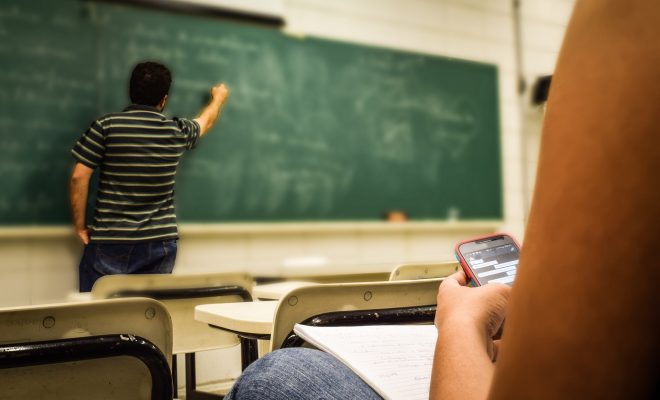4 Interesting Facts about Education in Mississippi
Mississippi is my home state, and an interesting state at that. Some time ago I wrote an article about what MLK would say about education in Mississippi, and I wrote it because of some startling realities about education in this state. I brought up that 24% of people in the state are estimated to live below the poverty line, and that many of Mississippi’s poorest residents are children of color — many of them are black children. For this reason, among others, Mississippi may need special attention when it comes to addressing P-12 education.
Here are a few sobering facts about education in Mississippi.
- Public education in Mississippi is ranked last in the nation year after year. Public education in Mississippi ranked last, yet again, on Education Week’s Quality Counts report . The state received an “F” grade for academic achievement, and a “D” for the chance of success for students.
There is no easy fix for this. Even academic programs targeted for at-risk students can only go so far. With a poverty rate of 24 percent in the state, the problems that impact student success in classrooms extend far beyond it. To really see a difference in student outcomes, the state needs economic initiatives that boost the life quality of residents and give more opportunities to students once they are done with school. Recognizing that these outside factors go hand-in-hand with student outcomes in classrooms is the first step toward moving Mississippi out of last place and putting it on course to be a P-12 leader in the country…
- Mississippi is short on education funding—by $1.5 billion. Durant Public School teachers in Mississippi spend their evenings on the Internet, browsing for math and other problems to give their students because the school doesn’t have up-to-date textbooks.
School leaders say that new books aren’t in the budget, nor are reading coaches to help improve the districts academic rating of “D.” To save money, teachers and their assistants have already been reduced and administrators took pay cuts.
The troubles in Durant, located about 60 miles north of Jackson, illustrate a picture of the state as a whole. Mississippi legislators have ignored a state law and spend $1.5 billion less on education than what is required; the cuts in the state are the deepest in the country.
State funding was originally cut as tax revenues plunged during the recession. According to early estimates, the state could fall $280 million short again in 2016.
Durant has 588 students in grades K-12. The teacher turnover rate is high, and when new teachers are hired they tend to be recent graduates who are inexpensive to bring on board.
Sanders-Tate, the superintendent in Durant, dreams of raising the schools rating from a “D” to “A,” but knows it’s a challenge.
“When you don’t have what you need, you’ve got to make do,” Sanders-Tate said. “I’m tired of making do for the kids when they deserve the best like everyone else.”
- Mississippi has one of the highest teen pregnancy rates in the nation, with 50 births for every 1,000 young women between 15 and 19 years old. Despite this, attempts to educate young people in the state about safe sex practices have been met with hostility.
Alarmed by the high rates of teen pregnancy, and high number (76 percent) of high school students who report being sexually active by age 17 in the state, members of the business community lobbied the state to make sexual education courses mandatory in public schools. Those lobbying won a partial victory — but actual implementation of the rule has been slowed down in the religious and conservative state.
The Los Angeles Times reports that mother Marie Barnard was pleased when Mississippi made sex education mandatory after many decades of disallowing it. She was less than pleased, however, when she found out one of the “lessons” involved students passing around an unwrapped piece of chocolate candy and observing how “dirty” it became with more contact. The message does not provide an educated view on sex, or show respect to young people who have been sexually active, she said.
The candy example is just one way the noble goal to educate Mississippi’s youth about responsible sexual activity has gone awry. Part of the enacted law requires parents to sign a permission slip allowing their children to take sex ed courses in the first place. There are also issues of enforcement and the exact curriculum being taught. Individual districts, for example, can choose to implement abstinence-only sex education classes.
So it seems the battle for a sexually-informed generation in Mississippi wages on, even in public school classrooms.
- Mississippi received a grade of “B” for its early childhood programs, compared to a national average of “D+.” There is a silver lining to every cloud. Despite being one of the worst-performing states in many categories of education, Mississippi ranks second nationally when it comes to Head Start enrollment (third nationally when it comes to Kindergarten enrollment and access to full-day Kindergarten programs). Getting kids signed up for early childhood programs is just the start of course. These children need to learn enough while in those classrooms, but getting them started as early as possible is definitely a step in the right direction when it comes to the future academic success of students in the state.
It is also one of the relatively few states in America that is pushing for mandatory Kindergarten. Representative Sonya Williams-Barnes, a Democrat from Gulfport, authored of “KIDS Act” that would change the mandatory school age for children in the state from 6 to 5 years old, in essence making Kindergarten mandatory for children in the state.
So how does Mississippi stack up against other states when it comes to the Kindergarten issue? There are only 15 states and the District of Columbia that require Kindergarten by law, and there are actually six states that do not even require public schools to offer Kindergarten. Despite the bad rap Mississippi often gets when it comes to student achievement numbers, the state does pretty well on Kindergarten access and has nationally high numbers for attendance. So adding in a Kindergarten requirement would not make a huge difference in the amount of kids who attended, but will just be more of a formality.
All this said, where Mississippi could really use the legislative boost is when it comes to pre-K education — an area where strides are being made. The Mississippi Department of Education reports that two-thirds of all the kids who entered Mississippi public Kindergarten in the fall of 2014 did not have the base-level skills required for adequate learning. In my opinion, the age of 5 is too old for mandatory education in the state, but it will probably be a few more decades before Mississippi, or any other state, requires it any younger. Hopefully this latest proposal will pass with no problems to show that state leaders are unified when it comes to early childhood education initiatives in Mississippi.
My home state of Mississippi needs to make some big changes as soon as possible. I want nothing more for the state to have sufficient money to put towards improving education, and to see the ratings improve drastically.
Click here to read all our posts concerning the Achievement Gap.




